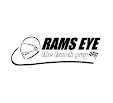J.D. Power released its 2015 U.S. Vehicle Dependability Study about three weeks ago. I don't like their rating criteria, though. According to J.D. Power, the study "examines problems experienced during the past 12 months by original owners of three-year-old (2012 model year) vehicles. Overall dependability is determined by the number of problems experienced per 100 vehicles (PP100), with a lower score reflecting higher quality. The study has been enhanced in 2015 to better measure problems related to new technologies and features that are now being offered in today's vehicles."
There are two problems right there. The first is that the problems are reported by owners, not the dealer so there may be issues that are only perceived to be problems. For example, I have heard and read about plenty of owners thinking they have engine or transmission problems and bringing their cars in to get fixed because they aren't accustomed to continuously variable transmission (CVT) noises. Another common issue that I know of is owners unaware of noises associated with direct injection (DI) gas engines. Because of the high fuel pressure DI gas engines run at, they have a ticking noise that can sometimes be heard at idle if there isn't much traffic noise (say in a parking lot). These two perfectly normal noises can be reported as problems when they aren't which is why a problem should be based on warranty repair records.
Another, and a much bigger, issue is better measuring "problems related to new technologies and features". I'm sorry, but I do NOT think of "new technologies and features" when I think of dependability. According to the press release, "bluetooth connectivity and voice recognition issues are the most frequently reported problems after three years of ownership, according to the J.D. Power 2015 U.S. Vehicle Dependability Study." Dependability, as the name suggests, should measure how much you can depend on your car. If your bluetooth does not work but your car still starts and goes perfectly fine, it's dependable. If you think that if the bluetooth or voice recognition feature does not work, you cannot depend on your car, you have no business driving.
Don't get me wrong, I think those issues should be accounted for. It shouldn't be called a dependability study, though. It should be called a "Satisfaction Study" or a "Quality Study". These sound all encompassing. They sound like they rating everything about the car. A Dependability Study sounds like it is rating which cars are most likely to never have drivetrain, suspension or body problems but that's not what they base it on.
Until they do that, I'll be taking the results of this study with a grain of salt. It's probably safe to say that the top 10 brands in this study are pretty darn reliable, regardless of measuring criteria. These brands are:
1 - Lexus
2 - Buick
3 - Toyota
4 - Cadillac
5 - Honda/Porsche (tie)
6 - Lincoln
7 - Mercedes-Benz
8 - Scion
9 - Chevrolet/GMC (tie).
10 - Acura
Beyond these, though, I wouldn't rely on the study for a measure of vehicle reliability. Looking at Lincoln and Ford proves my point. The comparison is eye popping in terms of number of problems. Lincoln has only 118 problems per 100 vehicles while Ford has 188, a whopping 70 additional problems per 100 vehicles sold, an almost 60% increase in problems while Lincolns and Fords are very mechanically similar. I'm sure Fords are just as reliable as Lincolns but Fords are bought by younger people who utilize their infotainment systems more and probably run into unintuitive features or bugs more often. In my opinion, you can count on the top 10 to be reliable but you shouldn't count out the others as being unreliable or use the ranking alone to determine which brand is more reliable and make a buying decision, except for maybe the bottom two; Land Rover and Fiat.













Comments
Post a Comment